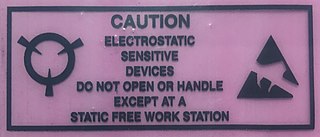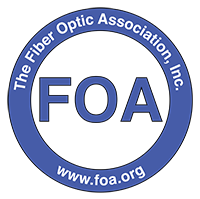This article has multiple issues. Please help improve it or discuss these issues on the talk page . (Learn how and when to remove these template messages) (Learn how and when to remove this template message)
|

EOS/ESD Association, Inc. dba Electrostatic Discharge Association (ESDA) is an independent trade association in the United States. EOS/ESD Association, Inc. is a voluntary association founded in 1982.
EOS/ESD Association, Inc. supports a wide range of educational programs and activities that provide industry professionals with the knowledge and tools needed to meet the challenges of ESD. Educational offerings include technical Symposia, workshops, seminars, regional and national tutorials, ESDA online academy courses, computer-based trainings, training DVDs, and numerous written articles. For more information on all educational offerings, please visit https://www.esda.org/training-and-education/. Events are offered world-wide including China, Vietnam, Malaysia, Germany, Belgium, USA, Singapore, Taiwan, and Philippines; with new locations being added each year. For an update to date schedule of events, please visit https://www.esda.org/events/calendar/.
EOS/ESD Association, Inc. is a standards developer organization affiliated with the American National Standards Institute (ANSI) and has published more than 70 documents on a wide range of ESD related testing topics. ESDA standards and specifications are developed by more than 100 volunteers from the industry and provide guidance for the development and maintenance of ESD programs in industry companies. Volunteers come from many corners of the world including Europe, Asia, South America, and North America. For a complete list of standards documents developed by EOS/ESD Association, Inc., please visit https://www.esda.org/standards/esda-documents/.
EOS/ESD Association, Inc. has the responsibility of representing the interest of the United States at the International Electrotechnical Commission (IEC) in the area of electrostatics. With the increasing need for global harmonization in the area of standards, the international focus of EOS/ESD Association, Inc. is vitally important.
EOS/ESD Association, Inc. has established many different types of certification. The ESDA offers facility certification programs to ANSI/ESD S20.20, obtainable through various certification bodies. The certification bodies also perform audits and certification reviews to ISO 9001. ESDA also offers personal certification program such as Program Manager, Device Design, and Device Stress Testing Certifications. These certifications carry a high amount of meaning behind them in terms of knowledge, competence, and problem-solving ability. To learn more please visit https://www.esda.org/certification/.
EOS/ESD Association ESD Facility Certification
In order to meet the high demand in the electronics industry for technically sound ESD Control Programs, EOS/ESD Association, Inc. has established an independent third party certification program to meet the global needs for the industry. The program is administered by EOS/ESD Association, Inc. through country-accredited ISO9000 certified bodies that have met the requirements of this program. The Facility Certification Program evaluates a facility's ESD program based on industry standard ANSI/ESD S20.20 or IEC 61340-5-1.
EOS/ESD Association Professional Program Manager
EOS/ESD Association, Inc. offers a professional certification for ESD control program managers. This program is intended for individuals who are involved in designing, implementing, managing, and auditing ESD control programs in their facilities. The Program Manager certification provides many different benefits to an individual and their company. These benefits include demonstrating knowledge, experience and competency, self-development and bettering their education and a positive improvement in performance reviews, career advancement and new employment opportunities. This certification helps employers and the industry because it not only raises the overall competency level of their entire ESD control field, but also provides a means to assess the qualifications of employees hired to work in static control.
EOS/ESD Association Device Stress Testing Certification
The ESD Device Stress Testing Certification is intended for individuals who are involved in ESD or Latch-up stress testing ranging from qualification to TLP testing for ESD development. This certification ensures that a person has the most current information on the ESD standards used in the industry along with a complete overview of the technical background to perform the tests or understand the testing results. In addition to learning the recommended test methodologies a person will be exposed to common pitfalls in interpreting the standards and applying it to the testing procedures used in the lab.







